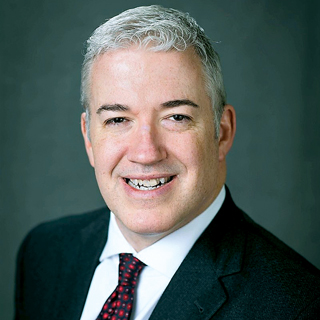

Why should it take the COVID-19 outbreak for policymakers to pay attention to nursing homes?
Last year in the state of Washington, when Medicaid underfunding forced the closure of Keiro Northwest — a 41-year-old nonprofit Seattle nursing home built to serve Japanese-Americans — many policymakers reacted with indifference. The staff wept as longtime residents, including survivors of World War II internment, were transferred.
Keiro was another casualty in a devastating wave of Washington facility closures. How did state government react to this crisis? Here’s how: With a proposed $8.6 million increase in funding for “on-call nursing staff, nursing supervisors and medical assistants” . . . for the care of prison inmates. No new funding was proposed for nursing home care.
Similarly, many policymakers yawned last month when Delta Rehabilitation, a family-run facility in operation since 1960, announced its pending closure. Delta served those with traumatic brain injuries, and that mission had begun on a personal note in 1975. As I wrote in a 2009 Seattle Times column:
Such injuries are beyond the norm for most skilled-nursing-home care, which makes Delta a special place. A severe brain injury commonly begins with a car crash. That’s what happened to 20-year-old Mike Walsh in June 1975.
On Highway 2 a drunken driver smashed Mike’s VW Bug. Clinically dead, Mike was resuscitated by the responding state trooper. Mike’s coma lasted seven months. Mike’s parents — who were running Delta — took him into the nursing home.
Now Mike is among those forced to move in yet another nursing home diaspora. But everyday tragedies forced by government neglect — like the displacement of Mike or Keiro residents — are not newsworthy enough to capture national headlines.
Now, with the COVID-19 outbreak linked to a nursing home in Kirkland, Washington, nursing home care is suddenly in an unwelcome spotlight.
As usual, we see national horror stories making sweeping generalizations about nursing homes and infection control, even though, as the Seattle Times reported, “The Kirkland facility has the highest possible overall rating from the Centers for Medicare and Medicaid Services, a score that combines data on health inspections, staffing and quality-of-care metrics.” Even with respect to this facility, we should await governmental investigation before drawing conclusions.
No similar national outcry, or stereotyping, occurred when, for example, it was found that a Seattle children’s hospital had sustained 14 Aspergillus infections — including six patient deaths — evidently due to air-filtration system problems.
We also see national horror stories about nursing home staffing, with no acknowledgement whatsoever about the role played by government underfunding of Medicaid care costs (most of which are staff wages and benefits).
Typically, in such stories, only critics of nursing home care, such as a disaffected family member, are given a voice. Stories can make it appear as if anything goes in a tightly policed care setting. In a sign of criticisms to come when, inevitably, we see cases in the assisted living setting, a recent New York Times article even stated, “Assisted living centers, in particular, are essentially unregulated.” Really? This “news” would certainly come as a surprise to the assisted living facilities that I represent!
No other care setting is more susceptible to anecdotes, as opposed to empirical data, in legislating, and reporting, than is nursing home care. Yet there are everyday heroes on the scene in Kirkland providing loving care despite personal risk, just as caregivers elsewhere have served residents amidst facility-threatening hurricanes or wildfires. Is it heretical to suggest that policymakers might consider rewarding them by paying for the care they’re providing?
Brendan Williams, M.A., J.D., is the president/CEO of the New Hampshire Health Care Association.




